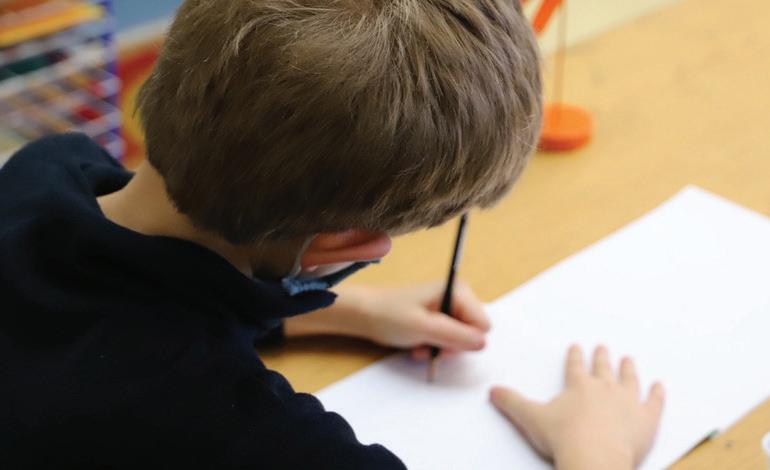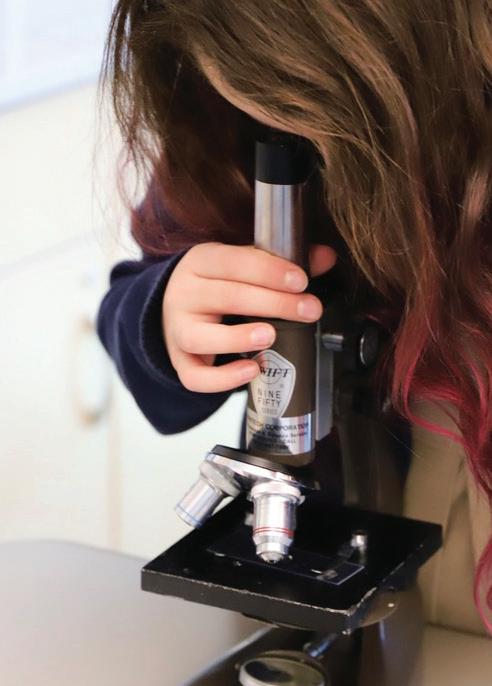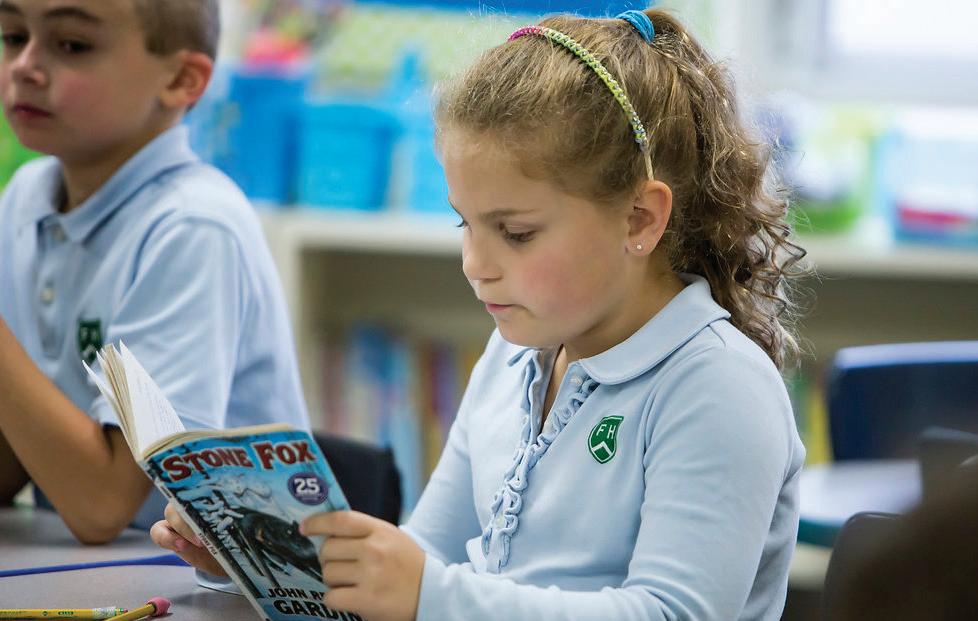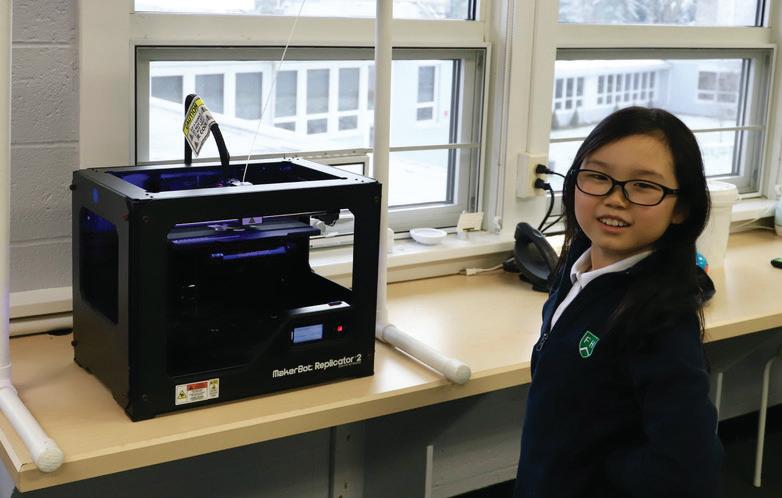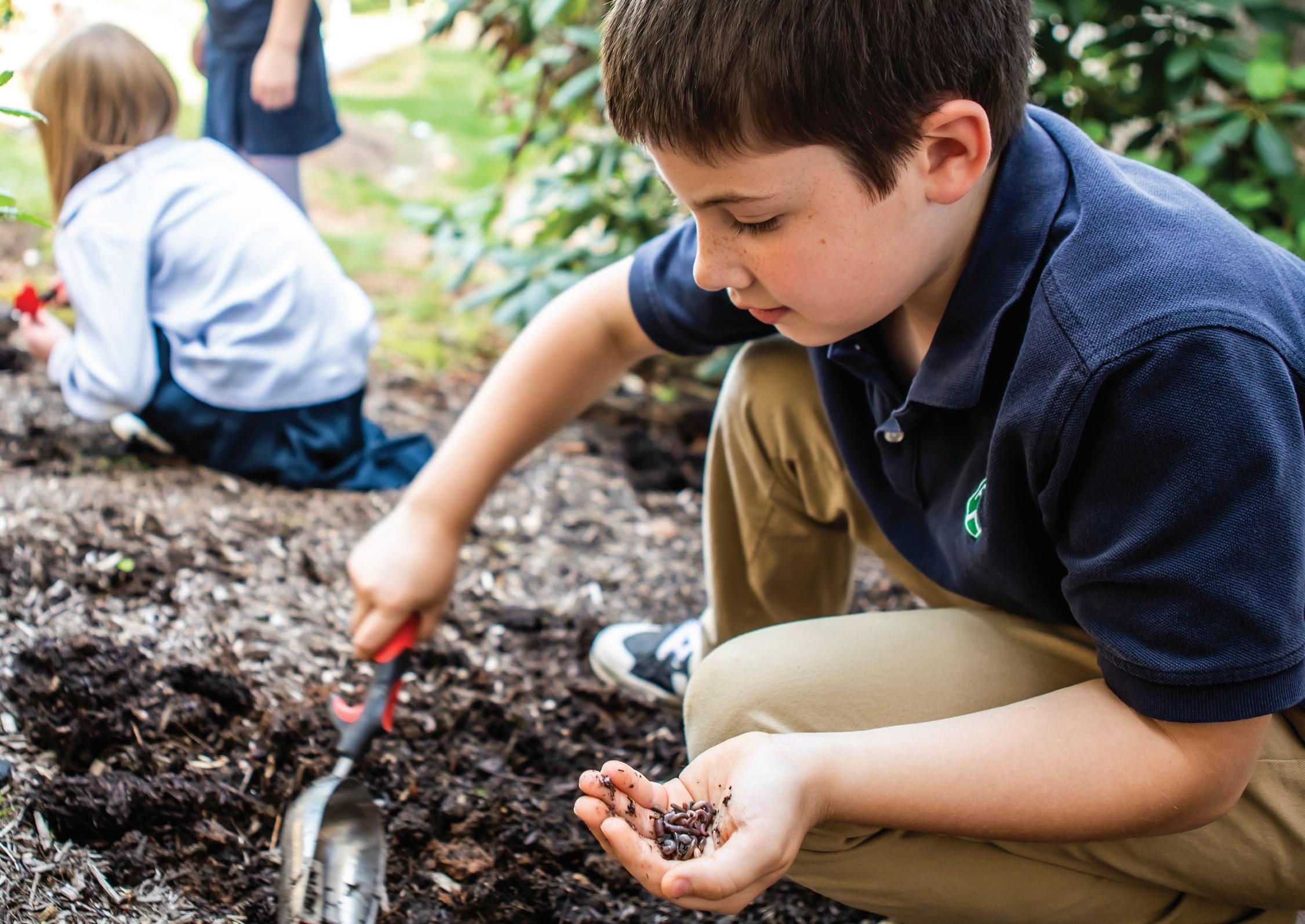
7 minute read
Grade 4
Grade 4 at Far Hills
By Grade 4, academic challenge has increased significantly, and subjects have become more sophisticated. Grade 4 students are more responsible and are beginning to think critically and informatively. Students begin to utilize more advanced strategies and can interpret and analyze information at a higher level.
Language Arts: Reading and Writing
Far Hills Country Day School’s Grade 4 students practice identifying key details in historical texts that help them to understand what happened and why. They practice integrating information from multiple sources in order to write and speak about a subject knowledgeably. They also compare and contrast various accounts of the same event or topic, identifying the points of difference, and then applying critical thinking skills to attempt to explain the reasons behind those differences. Students distinguish cause and effect, fact and opinion, the main idea, and supporting details in nonfiction texts. They also provide evidence from the texts to support their conclusions and opinions. In addition to our focus on nonfiction reading, a number of texts are used to further students’ reading skills with respect to novels as well as to expose them to different themes and story elements found in fiction books such as empathy, compassion, and conflict resolution. Through a multi-sensory study of gradelevel Greek and Latin affixes and roots, students learn the meaning of word parts which supports their reading fluency, vocabulary, and comprehension. They use these affixes and roots as clues to determine the meanings of words.
Students have the opportunity to work with members of our Reading Support Team either 1:1 or in small groups throughout each week to continue to receive individualized instruction with targeted reading objectives.
Grade 4 students continue to build on their writing skills throughout the year with a focus on strengthening and advancing their expository and narrative writing. They publish multiple works, using various Thinking Maps to organize information. From here, students are taught the structure of an opening and closing paragraph, as well as the main body of a text with appropriate supporting details. They continue to improve and evaluate their writing with multiple drafts, working to hone their editing and revising skills. Students produce writing in the following genres: reflection, narrative, expository, descriptive/creative, and persuasive. Students spell grade-level highfrequency words correctly and apply knowledge of word families, spelling patterns, and syllabication to spell new words.
Social Studies
Through an inquiry-based Social Studies curriculum, Far Hills Country Day School’s Grade 4 students explore an “Essential Question” (EQ) each trimester from the perspective of Indigenous people, explorers, and early settlers in America. Students engage in research, take field trips, and learn from guest speakers in order to discover the answers to the essential questions. • Trimester One EQ: How do people utilize the land for their survival and for their advantage? • Trimester Two EQ: What are the possible outcomes when different cultures encounter each other? Within a singular culture, how does an individual contribute to a larger society? • Trimester Three EQ: How and why do individuals or groups of people in a community share their ideas and experiences to make their perspectives known widely?
While exploring these questions, empathy is developed as the students seek to understand why people at different times in history made the choices that they made. In addition to empathy, Grade 4 students practice skills such as identifying critical details in nonfiction texts, note-taking (summarizing, paraphrasing, organizing), and comparing and contrasting different points of view.
Math
Supported by their previous training, Grade 4 students increase automaticity with the basic facts of mathematics. They are
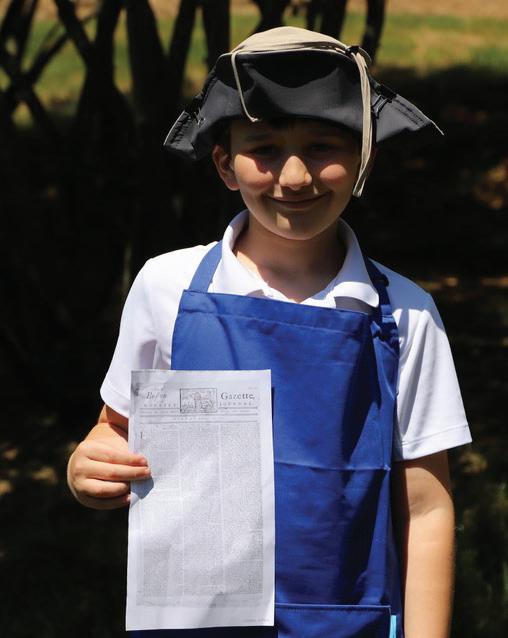
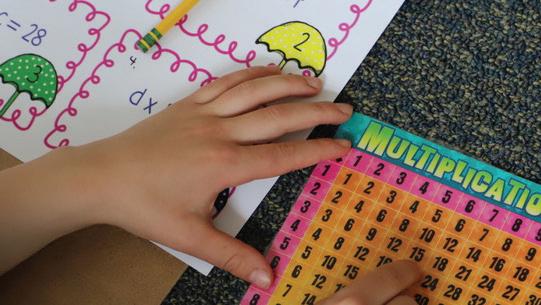
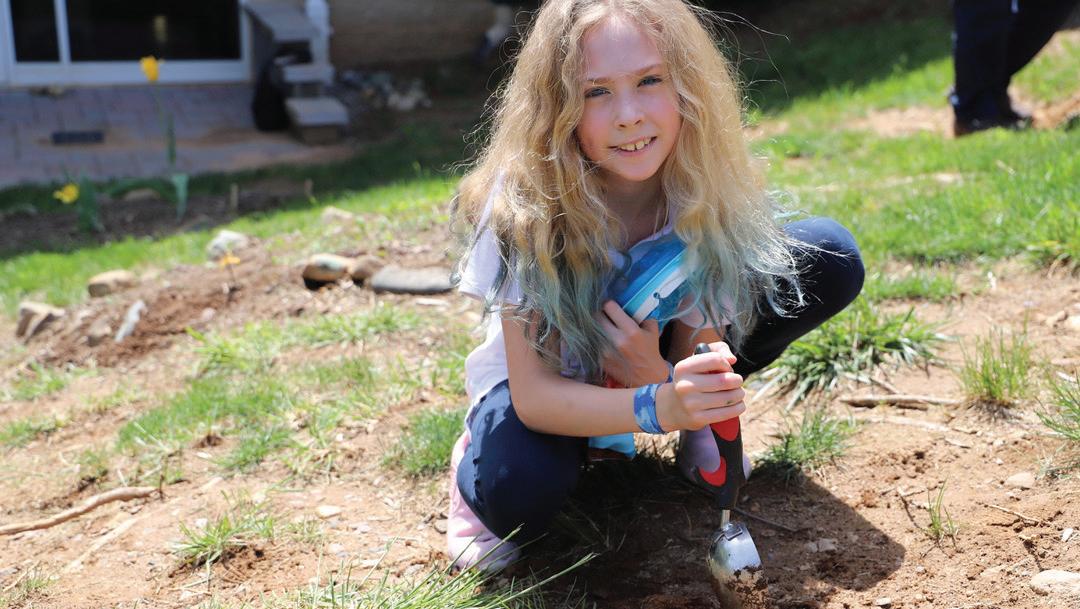
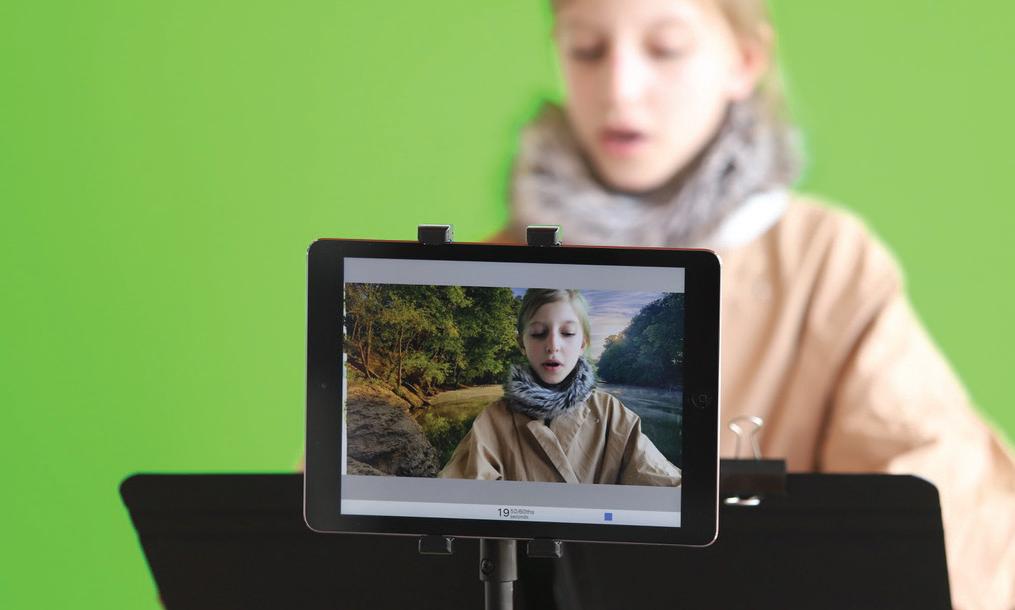

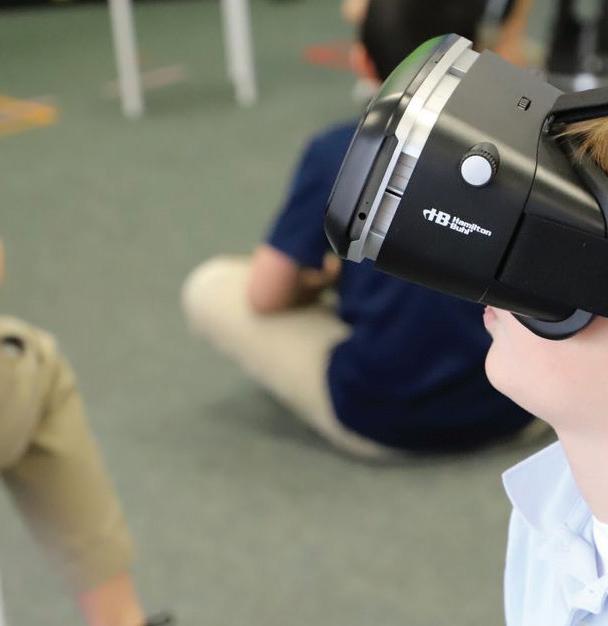
encouraged to continue to apply their understanding of models, place value, and properties of operations to develop and use efficient and accurate methods to multiply and divide multi-digit numbers. They practice using estimation to determine the reasonableness of their answers.
Grade 4 students develop an understanding of fraction and decimal notation as an extension of the base-ten number system. They compare and order fractions and decimals and in doing so, extend their ability to recognize equivalent values.
Students also explore area as an attribute of two-dimensional regions and learn that a square unit is the standard unit for measuring area. As part of understanding two-dimensional shapes, students measure and classify angles.
Students in Grade 4 work to build resilience as they grapple with multilayered problems and strengthen their ability to communicate their mathematical thinking.
Science
Building on hands-on exploration, inquiry, and skill development, Grade 4 students learn about science phenomena across Life, Earth, and Physical Science disciplines. Core skills are reinforced: observing, asking questions, defining problems, making models, communicating both verbally and in journal writing, planning and carrying out investigations, analyzing and interpreting data, computational thinking, constructing explanations, and designing solutions. Topics include energy, natural resources, magnetism, electricity, microscopes, astronomy, and plant pollination. At the end of the year, students will be able to work safely in a lab setting, use more science tools, follow the scientific process, and independently plan experiments, and will have strengthened teamwork skills. The signature project for Grade 4 includes a culminating astronomy experience where Greek mythology stories about constellations are told in a Starlab dome. communication and listening comprehension are emphasized above all in preparation for Grade 5. Students begin to encounter explicit grammar explanations and rules, such as using the most common verbs, “to have” and “to be,” and matching nouns with adjectives. During Hispanic Heritage Month, Grade 4 students have the opportunity to study a famous or influential historical figure.
Grade 4 students complete the “All About Me” project. In the Spanish language, students describe themselves (physical features and interests), their family, house, and other personal details using basic verb phrases and accumulated vocabulary.
Music
Grade 4 students acquire music literacy skills, perform music on the xylophones, ukuleles, drums, and recorders, experience and sing music from various cultures and countries, and compose and create music traditionally and electronically. Grade 4 musicians perform in three productions throughout the year:
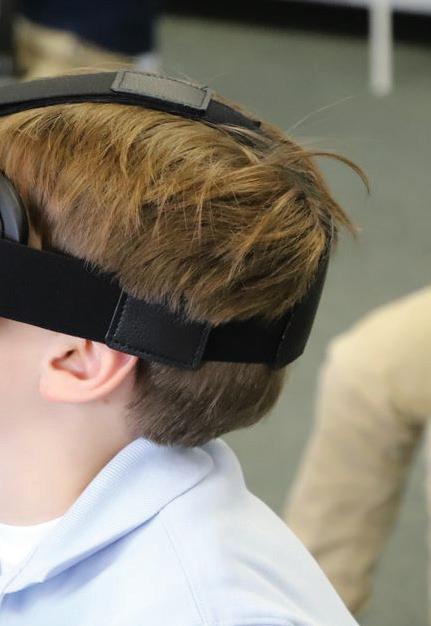
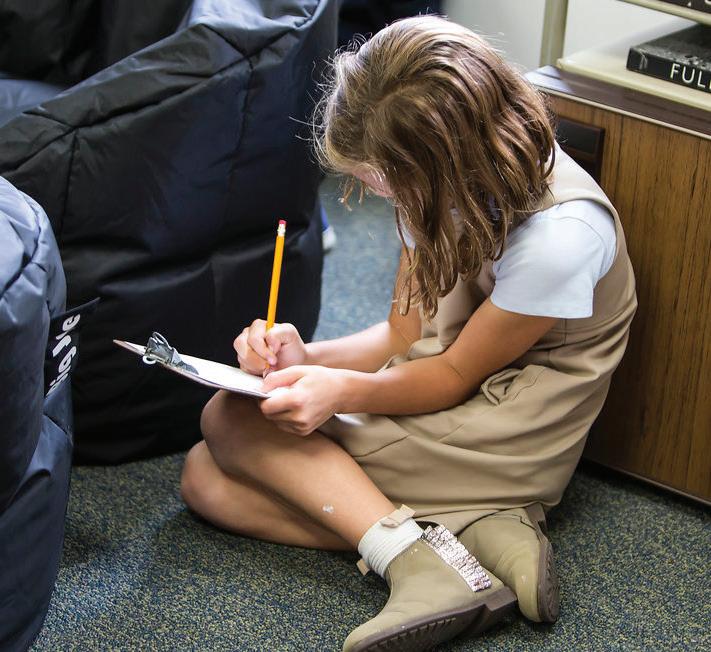
K-8 Holiday Concert, integration of performance and composition for their Fourth Grade Expo, and the Lower School Closing Ceremonies.
Visual Art
In Grade 4, students brainstorm multiple approaches to a creative art or design problem. They explore and invent art-making techniques and approaches. Grade 4 students also create works of art that reflect community cultural traditions.
Learning and Design
During Learning and Design class, Grade 4 students locate, organize, analyze, and synthesize information from various sources with the understanding that audiences may vary. Students become more sophisticated with all aspects of different Google tools and keyboarding skills progress using the Typing Club platform. Digital Citizenship topics are reviewed with new topics introduced, including individual technology use, media choices, and online activity continue to increase. Grade 4 continues to learn about plagiarism, copyright, digital etiquette, and internet safety. Coding skills develop with individually paced platforms and collaborative activities and the concept of conditionals is introduced. The Grade 4 Colonial Capstone Project is a culmination of acquired skills as the students exhibit their abilities as active learners and content creators.
Library
In Grade 4, students continue to learn how information is organized in print and online sources and how to search these resources efficiently and effectively. They also study media literacy, which includes evaluating websites and online images for accuracy and reliability.
Social-Emotional Learning
In Grade 4, students work to use their words to communicate their feelings with others in order to solve conflicts. We use different crosscurricular activities to incorporate the following skills: self-awareness (recognize one’s own emotions, thoughts, and values); self-management (effectively manage stress, controlling impulses, and motivating oneself); social awareness (empathize with others, including those with diverse backgrounds and cultures); relationship skills (maintain healthy relationships with others including communicating clearly, listening well, and cooperating with others); and responsible decision-making (make choices about personal behavior and the well-being of oneself and others).
Highlights of Grade Level Objectives
By the end of Grade 4, Far Hills Country Day School students will be able to: • revise writing to strengthen content and incorporate vivid, precise language; • demonstrate effective time management strategies and complete work by the due date; and • use place value strategies to multiply and divide multi-digit numbers.
